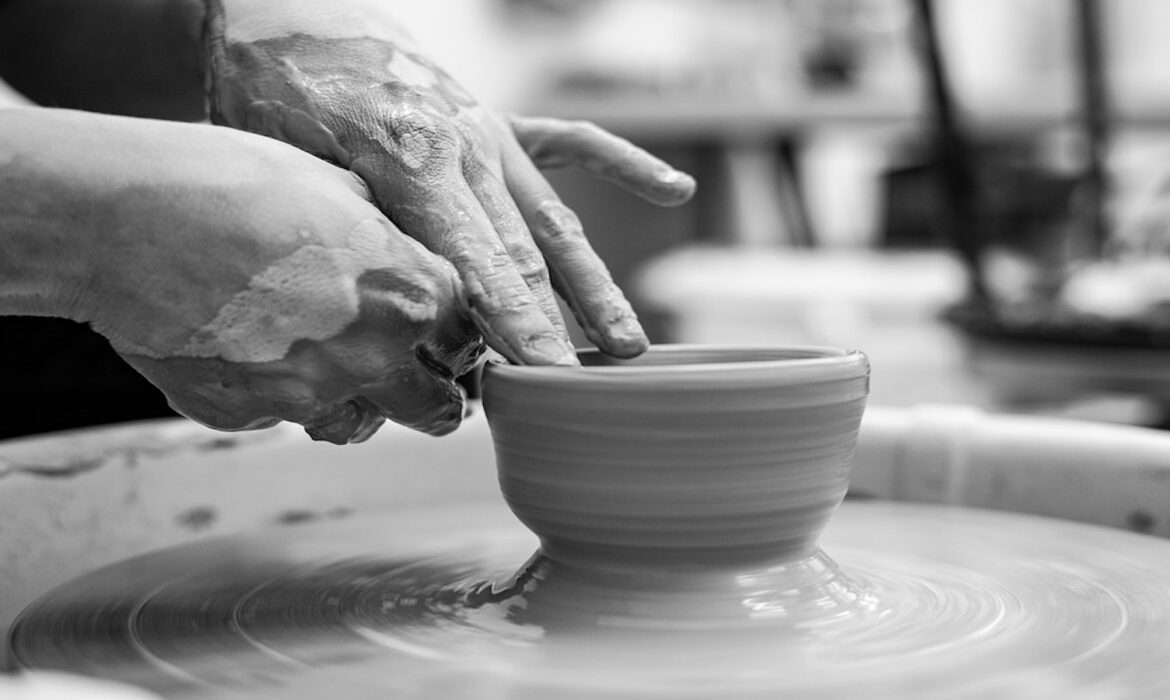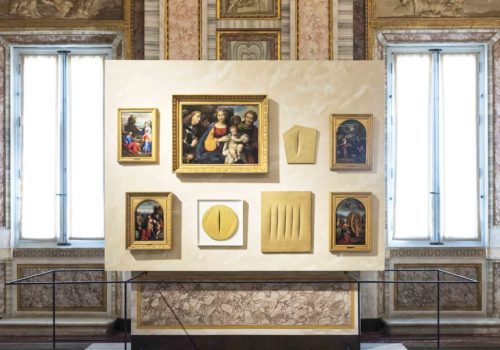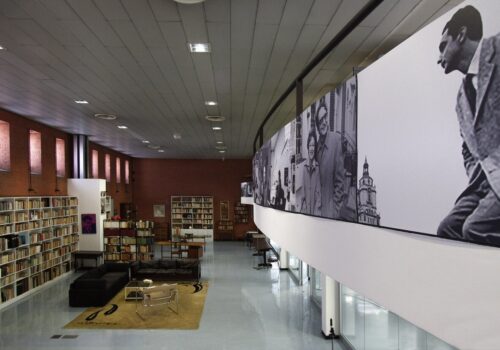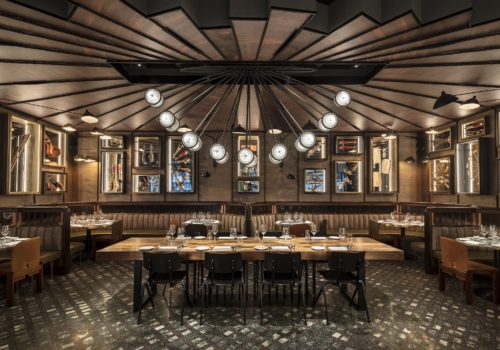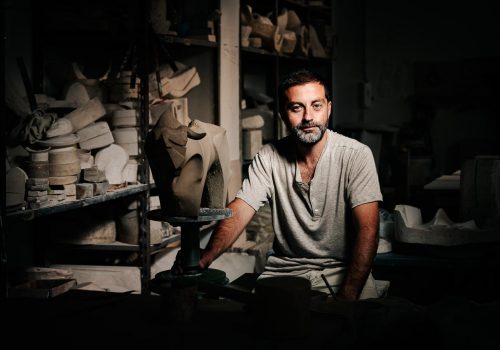Artijanus/Artijanas: residencies for artists and a plan to rehabilitate smaller cities
A male and female name, with the rhythm of a lullaby to narrate how the world of design works together with the crafts. «A long name, but the dirge that repeats it simplifies it into an equal semantic articulation. A double name: Janus, the god of doors and passage, and Janas, the Sardinian name for fairies, mysterious creatures of the Sardinian tradition. Double in synthesis and in difference. A graphic repetition that confirms a multiplicity of methods and skills», says Stefano Asili, who conceived the graphic identity and the title image. He describes the “design” and provides the keys to understanding the spirit of this newly born project, ArtiJanus/ArtiJanas.
ArtiJanus/ArtiJanas is an experimental operation that brings fresh life force to an experience that began in the 1950s in Sardinia, and which, with all its strengths and weaknesses, has survived to this day. That experience tied together thought and action, design and craftsmanship. This operation focuses on two artistic residencies for two designers (so far) selected by the Fondazione Triennale Milano and Fondazione Cologni, who will work with two craft workshops on the territory, chosen among the many who answered the call, on the themes of weaving and ceramics, two pillars of the Sardinian tradition. The experience will end with an exhibit at Homo Faber, the cultural event dedicated to artistic trades to be held at the Fondazione Giorgio Cini in Venice from September 9th through 26th 2021, with the theme “Living Treasures of Europe and Japan”.
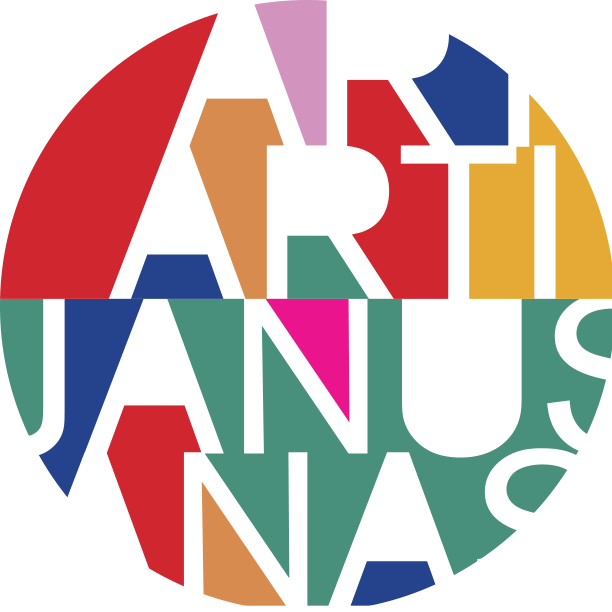
Logo © Artijanus/Artijanas
The purpose of this event is to gather the various fields in the craft industry around a wide programme of activities and practices oriented, on the one hand, to highlight the cultural and economic role of craftsmanship, and on the other to stimulate the industry to reconsider its own productions, to cross-fertilize them, to associate them, to generate innovation and new opportunities for development. But it is also an invitation to re-populate the smaller towns in Sardinia where the relationship between “know-how” and the communities is a tight one.
«This past year has been terrible for everyone, imagine what it was like for our craft industries. At a time when everything has just fallen to pieces, we must find a new language, a new method to start over and perhaps even reinvent ourselves», says Roberta Morittu, the co-curator, with Alberto Cavalli (Director General of the Fondazione Cologni) of the initiative
«The level of quality, the spontaneity of this moment, says Morittu, who as the co-designer of the Biennale Sarda dell’Artigianato won the Compasso d’oro award in 2011, is very important and interesting. It is clear that an understanding of markets can lead to improvement, can tighten or establish contacts between craftsmen and markets, taking them into different contexts and revitalizing the network. If everything is then related to the issue of the territory, if we wish to make these territories interesting, especially for the people who live there and for the new generation, this is the way to go, because the new generation cannot be the victim of a context. This is a path towards knowledge, which is essential for the two designers selected for artistic residencies. In this effort, it is fundamental to achieve a deep understanding of the territory, a deep understanding of the context, an expression of place. Crafts are part of a cultural landscape that must be understood». But this initiative is also important because it casts a spotlight on the role of the craftsman and repositions the role of the designer. «The craftsman must be able to shorten the production chain and present himself to the market personally and properly. To close the production chain, he needs the help of other professional figures, thus the role of the designer as a facilitator for this mechanism becomes important and strategic. It is also interesting to see the designers at work with minimal crafting skills. Skills they do not know they have because they inherited them, because they are the product of memory and history. But little by little all this loses meaning if left to ancient codes, hence the need to relate it to contemporary thought processes and expressive means», concludes Morittu.
«The enhancement of the applied arts, the decorative arts, the artistic trades, in the extraordinary context of the Sardinian territory, is an extremely important operation which aims to foster an encounter between a contemporary artistic vision and the intelligence of the hand. And to give proper formal status to what are true ‘living treasures’, which constitute an extraordinary cultural heritage and an authentic form of sustainable production», states Stefano Boeri, president of Triennale Milano
ArtiJanus/ArtiJanas is promoted and supported by the Fondazione di Sardegna, under the scientific and artistic direction of the Triennale Milano, the operative direction of Innois s.r.l., the collaboration of the Fondazione Cologni dei Mestieri d’Arte and the organizational responsibility and event management of Tools s.r.l. The website of the initiative, www.aju-aja.it, is now online, with a schedule of workshops, debates and public events dedicated to all the companies in the region distinguished by the prevalence of manual skill in their productive processes.

© Artijanus/Artijanas
Translated by: Olga Barmine
© ALL RIGHTS RESERVED


